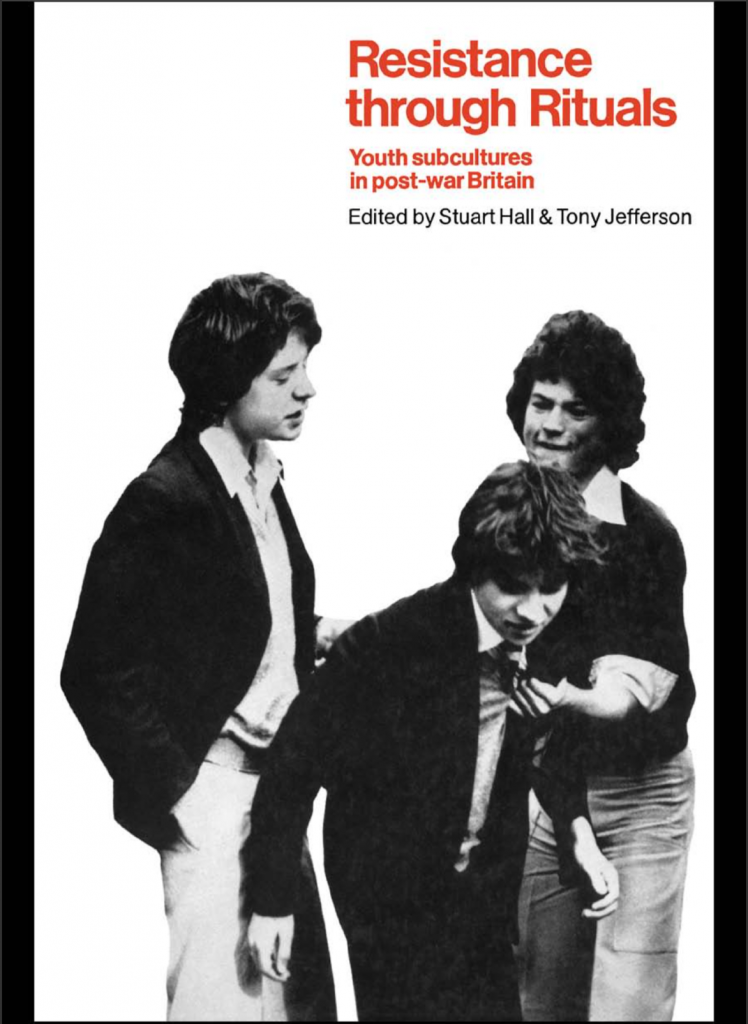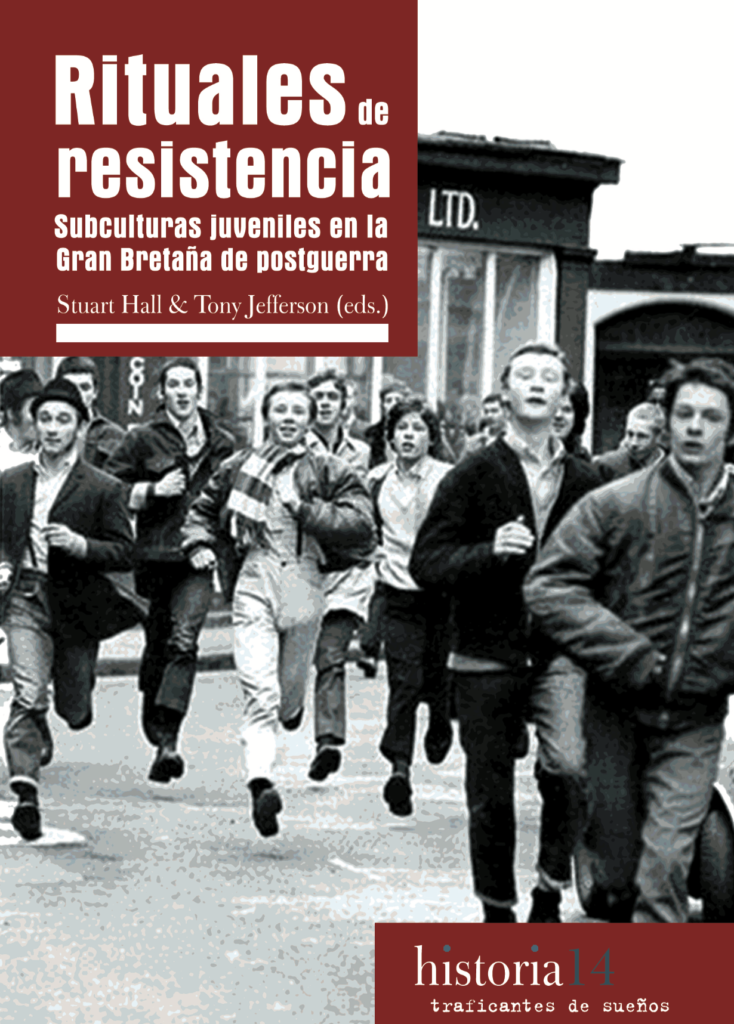Stuart Hall y Tony Jefferson (eds.), Rituales de Resistencia: subculturas juveniles en la Gran Bretaña de posguerra (Madrid: Traficantes de Sueños, 2014 [Original: Resistance through Rituals: Youth Subcultures in Post-War Britain (London: Routledge, 1993)] Preface.
Translated from English into Spanish
[…] Primero con la llegada del denominado ‘hombre nuevo’, el producto metropolitano de una mayor igualdad de género que el feminismo intentaba introducir a empujones; más tarde, los ‘nuevos machos’ surgieron como parte de un movimiento reactivo; y, finalmente tuvo lugar la ‘crisis de la masculinidad’. Desde el punto de vista político, y de igual manera que ocurrió con el debate sobre la ‘subclase’, todo este trabajo se realizó ante el telón de fondo del mundo angloamericano, que sufría entonces una reestructuración neoliberal, un proceso de desindustrialización y sus consiguientes transformaciones. Todos los estudios, uno tras otro, revelan los efectos poco menos que desastrosos que han tenido la desindustrialización, la precarización y la inseguridad laboral en los hombres jóvenes de clase obrera, en un contexto de cambio en las relaciones de género y raza. […] Estas respuestas ‘hipermasculinas’ entran en un complejo diálogo con discursos contemporáneos que tratan los trastornos en la juventud (el nuevo vandalismo, el nuevo ‘machirulismo’ , el hooliganismo, el ‘chonismo’, el fenómeno ‘hoodie’, etc) con sus correspondientes ‘soluciones’ y penalizaciones legales. La crisis de la masculinidad es tanto un discurso como una realidad.
[…] First, in the so- called ‘new man’, the metropolitan product of the greater gender equality feminism was fitfully ushering in; later, in ‘new lads’ as the ‘backlash’ got under way; finally, in the ‘crisis of masculinity’. Politically, as with the underclass debate, this work took place against a backcloth, in the Anglo-American world, of the emergence of the new right, of neo-liberal restructuring, de-industrialization and the resulting transformations: the effects of de-industrialisation, casualisation and job insecurity on young working class men, in the context of shifting gender and race relations, has been little short of disastrous, as study after study reveals. […] The response to all this on the part of many white males is likely to be a defensive accentuation of the worst, most regressive traits of traditional masculinity and a complex and contradictory racism. The response by black males is an angry sense of failure, a projected debasement of women, social exclusion and criminalization. These ‘hyper- masculine’ responses enter a complex dialectic with contemporary discourses of youthful disorder – the new loutishness; new laddism; the yob; the ‘Chav’; the ‘hoodie’ – with their accompanying law and order ‘solutions’: the ‘crisis of masculinity’, both lived and discursive.

